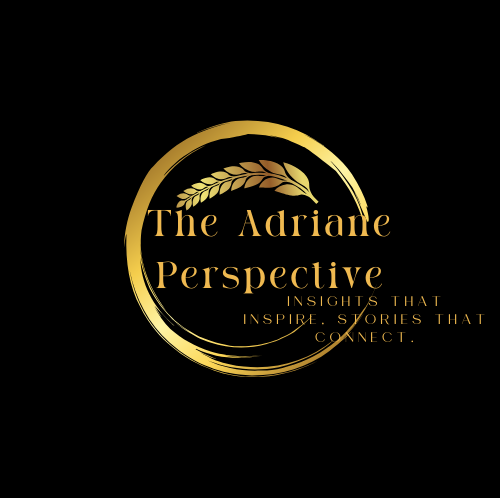Justice Thomas Concealed Additional Trips Funded by Billionaire
In a revelation that has sent shockwaves through the corridors of power, Supreme Court Justice Clarence Thomas has been found to have concealed several luxury trips funded by a prominent billionaire. This disclosure not only raises significant ethical concerns but also calls into question the transparency and integrity expected of those who hold the highest judicial office in the United States.
The Unveiling of Concealed Luxury Trips
Recent investigations have uncovered that Justice Clarence Thomas failed to disclose multiple luxury trips funded by a billionaire patron. These trips, which included stays at high-end resorts and exclusive events, were not reported in his financial disclosures as required by law. This omission has sparked a debate about the ethical boundaries and transparency standards for Supreme Court Justices.
Ethical Concerns Surrounding the Lack of Disclosure
The Supreme Court Justices are held to the highest ethical standards to maintain public trust and ensure impartiality in their decisions. The failure to disclose such significant gifts undermines these principles and opens the door to potential conflicts of interest. When a Justice receives lavish gifts from wealthy individuals, it can create a perception of favoritism or bias, whether intentional or not.
Legal Obligations for Justices in Financial Disclosures
Under the Supreme Court’s Code of Conduct, Justices are required to disclose gifts and financial interests that could influence their judicial decisions. These disclosures are meant to promote transparency and accountability. Justice Thomas’s omission of these luxury trips deviates from these established norms, raising questions about adherence to ethical guidelines.
Impact on Public Trust in the Supreme Court
Public trust in the Supreme Court is paramount for the functioning of American democracy. When ethical violations come to light, they can erode confidence in the judiciary’s ability to remain impartial and fair. For many, especially within the Black community, this revelation may deepen existing concerns about the representation and fairness within the highest levels of government.
Historical Context of Ethical Issues in the Supreme Court
This is not the first time the Supreme Court has faced ethical scrutiny. Previous Justices have encountered similar controversies, but each instance contributes to a growing concern about the court’s vulnerability to external influences. Understanding this historical context is crucial for addressing and preventing future ethical breaches.
Reactions from Political Figures and the Public
The disclosure of Justice Thomas’s concealed trips has elicited strong responses from political leaders and the general public. Many lawmakers have called for a thorough investigation into the matter, emphasizing the need for accountability. Additionally, advocacy groups within the Black community have voiced concerns about the implications of such ethical lapses on broader issues of representation and justice.
The Influence of Billionaire Patrons in the Judiciary
The relationship between wealthy patrons and public officials is a contentious issue. While philanthropy can drive positive change, the influence exerted by billionaires on judicial figures poses significant risks. It blurs the lines between private interests and public duty, making it imperative to scrutinize these relationships closely.
Balancing Philanthropy and Influence
Philanthropic contributions are essential for supporting various causes and initiatives. However, when these contributions come with the potential for undue influence, it becomes problematic. Establishing clear boundaries and robust disclosure mechanisms can help maintain the integrity of the judiciary while still allowing for philanthropic support.
What This Means for the Future of Judicial Transparency
The case of Justice Thomas highlights a pressing need for enhanced transparency within the judiciary. Moving forward, there must be a concerted effort to strengthen disclosure requirements and implement stricter oversight mechanisms. This will help restore public confidence and ensure that the Supreme Court remains a bastion of impartiality and justice.
Calls for Stricter Disclosure Requirements
In response to this revelation, there are increasing calls for more rigorous disclosure requirements for Supreme Court Justices. Advocates argue that comprehensive and regular financial disclosures are essential for preventing conflicts of interest and maintaining the court’s credibility. Legislators and ethics committees are now under pressure to review and potentially reform the existing disclosure frameworks.
The Broader Implications for the Black Community
For Black women in America, who are navigating a landscape fraught with systemic challenges and striving for equitable representation, the ethical lapses of a Supreme Court Justice have profound implications. It not only affects their trust in the judiciary but also underscores the necessity for unwavering accountability among public officials. Ensuring that those in power uphold the highest ethical standards is crucial for advancing justice and equality.
Moving Forward: Rebuilding Trust and Ensuring Accountability
Rebuilding trust in the Supreme Court requires transparent actions and a commitment to ethical integrity. Implementing stricter disclosure requirements and ensuring that all Justices adhere to these standards are vital steps in this process. Additionally, fostering open dialogues about the importance of judicial ethics can help bridge the gap between the judiciary and the public.
Steps Towards Greater Transparency
- Implementing mandatory, detailed financial disclosures for all Justices.
- Establishing independent ethics committees to oversee judicial conduct.
- Ensuring public access to all disclosures and potential conflicts of interest.
- Promoting ongoing ethics training and education for Justices.
Conclusion
The revelation that Justice Clarence Thomas concealed luxury trips funded by a billionaire patron serves as a stark reminder of the ongoing challenges facing the Supreme Court’s ethical landscape. For The Adriane Perspective and our community, it underscores the critical importance of transparency, accountability, and unwavering integrity in our institutions. As we navigate these complex issues, it is essential to advocate for reforms that protect the sanctity of the judiciary and uphold the trust placed in it by the American people.
